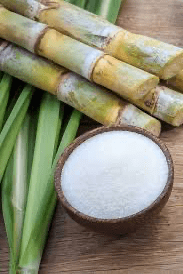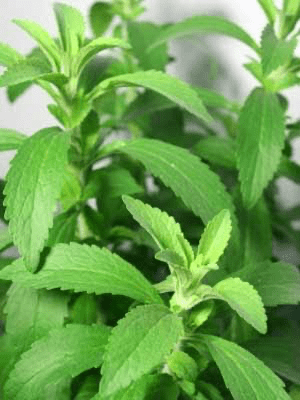The sugar coated story of our health and wellness - a reflection for Matariki
It is approaching Matariki here in Aotearoa. At this time of year, the Matariki star cluster can be seen in our southern skies. This is a very special time of the year for Māori, as it signifies a new year, new plans, and a time to let go of all that no longer serves you. From a health and well-being perspective, it is a fantastic time to look at our diet, and habits, and identify things that are holding us back from achieving our health goals.
One thing that might be getting in our way, is the hidden ingredients in foods available in supermarkets. Often ingredients are hidden under different names, or misrepresented as being innocuous, when in actual fact they are quite toxic to our physical system.
We all know pretty much by now, that there is a problem in the world, with sugar. Sugar is added to just about every foodstuff in the supermarket, making it almost impossible to buy foods which are free from sugar. Sugar is added to foodstuffs that do not need sugar, or already have high contents of naturally occurring sugar. However, nutritionally, it adds nothing of benefit to our diet, and it causes a whole host of serious health problems.
Sugar comes in its own refined state, but it also gets hidden and disguised under other names, such as maltodextrose, fructose-added sweeteners, fruit juice concentrates, malt syrup, high-fructose corn syrup, corn sweetener. We also have some very dangerous ingredients, which are marketed under innocent guise, eg ‘no added sugar’. However, this means that there is usually an artificial sweetener added. The most common artificial sweetener is aspartame, which has been shown to be a highly possible carcinogenic food, in many research studies over the past decade. In fact, the .world Health Organisation is set to now officially announce aspartame as ‘possibly carcinogenic to humans’ (www.food safety.com). Carcinogenic means that it actively contributes to, or creates, an environment which promotes the growth of cancerous cells.
But, our bodies don’t need any extra added sugars, and it has only detrimental effects on our health and well-being. Over time, it also has a very detrimental effect on our mental health.
At www.the conversation.com, they make the point that:
“It seems as though no other substance occupies so much of the world’s land, for so little benefit to humanity, as sugar.” They cite its main outputs as commercial profits, and a global public health crisis.
Studies have shown that added sugar in our diet only provides detrimental effects, such as:
- increased risk of diabetes,
cardiovascular disease,
colon / pancreatic cancer,
high blood pressure,
high cholesterol,
kidney disease,
liver disease,
damage to eyes, muscles and nerves,
increased risk of dementia,
systemic inflammation,
obesity,
accelerated signs and symptoms of ageing (www.medical news today.com).
In addition, studies have shown that sugar creates behavioural drives and responses which are indistinguishable from addiction, in the same way that tobacco addiction causes certain behaviours. Some studies suggest that sugar is as addictive as cocaine, due to the dopamine rush that is caused when eating sugar. This leads to cravings, tolerance, and higher and higher amounts required to create the same effect.
(www.theconversation.com; www.addiction centre.com; https//blog.uvahealth.com)
If you find this hard to believe, try to set yourself the challenge of completely eliminating added processed sugar from your diet for just one month! Check every single label of foods that you buy, and only buy foods with no sugar in - that means also no ingredients ending in ‘-ose’, no artificial sweeteners. Keep a diary of your experience, including any withdrawal symptoms and cravings that you may have. Let us know how you go…
It is well known that when children grow up exposed to a diet of sweet, sugary foods and drinks, they will grow up to prefer that kind of food. However, when they are exposed to a naturally healthy diet of fruits, vegetables, and healthy protein and carbohydrates, they will naturally prefer that instead (https//newsinhealth.nih.gov). So why on earth are we filling our beautiful, natural, and already perfect foodstuffs with this horrible poisonous substance, all over the world? It makes no sense at all, from a perspective of health and wellness.
Sugar is used as a preservative, to make food last longer. It is also used as a filler, for example in jellies and jams, to bulk out the fruit. It is used in every processed food, to stimulate and change your tastebuds, and make you eat more of it. This is where sugar cravings come from.
Sugar also returns record commercial profits, for governments, stakeholders, and countries, so they have a big motivation to get as many people as possible to consume it. However, we can choose what we eat. We have the power to make different choices, and walk away from supermarkets, and processed food.
When we think with a mindful mindset about our habits, and our lifestyle, we can begin to make choices about what we actually want, for our health and well-being. Most people want to feel good, and be happy, and healthy. We have more power over our own health than we realise, and it is up to us to use that power, and decide how we want to live, for our own goodness. Matariki is a wonderful time to reflect on what we are really putting into our bodies, and to reflect on whether that aligns with our goals for what we want to achieve with our health.
Natural, unprocessed foods are essential for good physical health, and also good mental health. It is very empowering to be able to grow these foods in your own space, at whatever scale you can manage. There are many natural options for sweetening foods, and you can grow some of these in your own garden. This means that you can have your own source of sweetness in your own home!
Stevia is probably the best known option. It is a perennial herb, with leaves which are 20-30 times sweeter than sugar. It can leave a bitter aftertaste for some people, but there are ways to disguise the taste in recipes. It has no calories, and has been show. To reduce blood pressure and blood glucose levels in studies (www.thisnzlife.co.nz).
It comes already prepared, in shops, in the form of powder or pillules. It comes from the stevia plant, and you can buy these in your garden centre, or health store (the larger ones such as Chantal’s in Napier, and Cornucopia in Hastings, sell seedlings of various kinds).
Stevia likes to be planted in a rich, free draining soil, in a sunny spot.
It is a perennial, but it will die back during the NZ winter. In colder areas, it may need to shelter indoors over winter. In spring, it will start to grow new shoots again. Keep it watered, but not overly so, and add a layer of compost or mulch to prevent shallow feeder roots from dying out. When it grows, pinch out the middle leaves to encourage bushy growth. Harvest the top 2 or 3 leaves of each stem. (www.thisnzlife.co.nz).
To use in the kitchen, substitute 1 teaspoon of stevia for 1 cup of sugar. (www.sweetlysteviausa.com).
If you would like to receive our weekly newsletter, featuring the plant of the week, and a recipe to go with it, please use our sign up form to send us your details. Each recipe contains instructions to make it into a Green Fairy recipe, and we also send details of any upcoming events.


